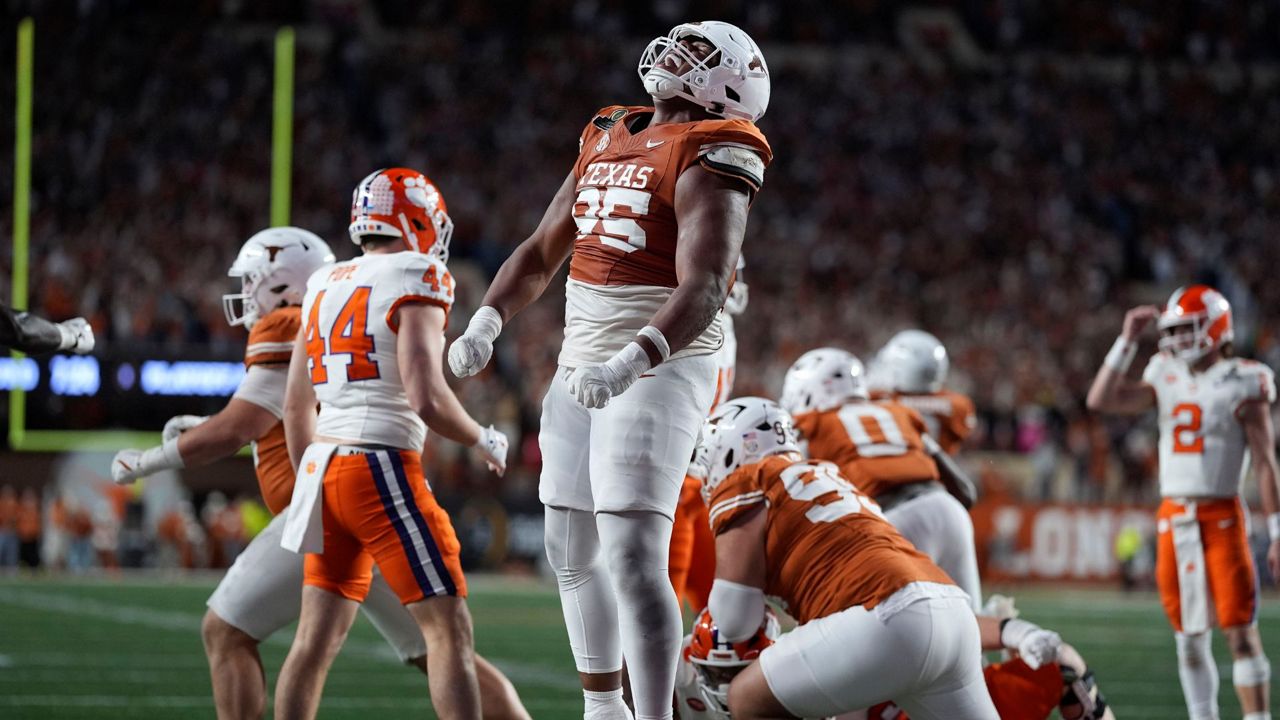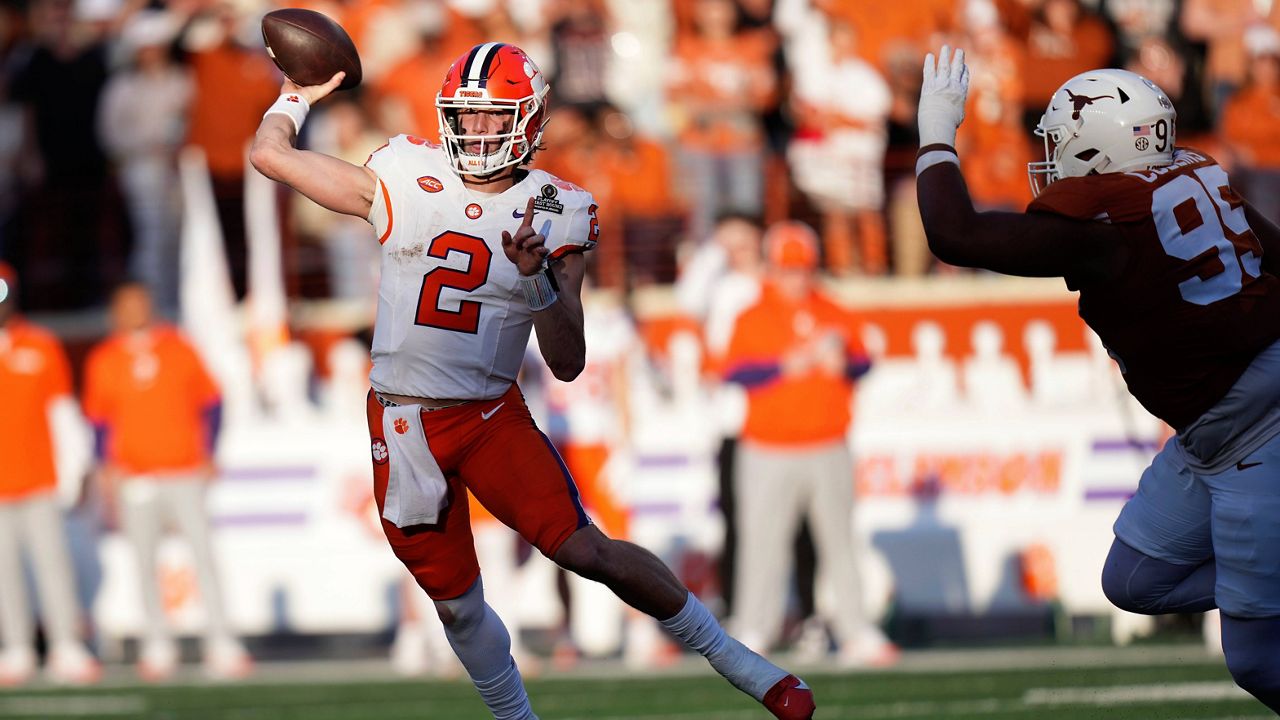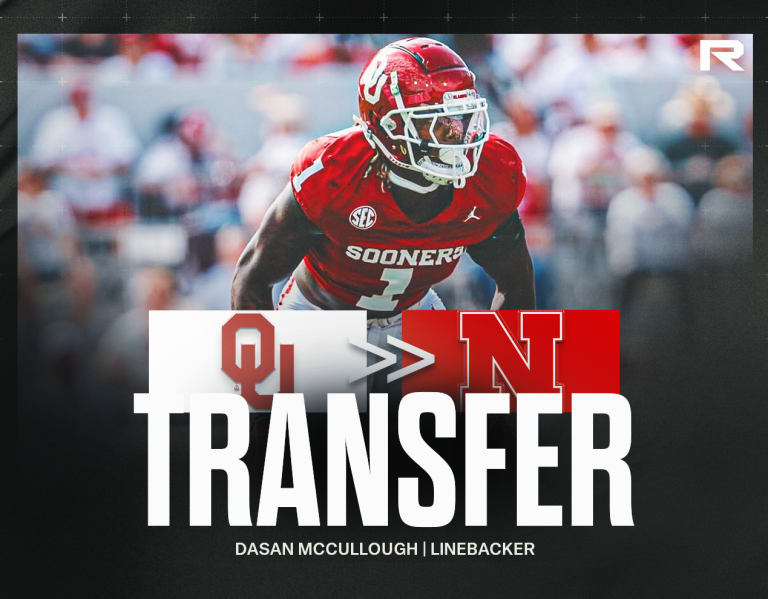DESTIN, Fla. — The idea came up before the Rose Bowl, when Georgia and Oklahoma officials were hanging around, marveling that this would be the first time the two programs had played each other. Two big programs, connected through history for suing the NCAA and winning at the Supreme Court.
Within a couple of years a deal was struck: a home-and-home for 2023 and 2031.
“We were gonna call it the Judge Burciaga game,” Oklahoma athletic director Joe Castigilione said. That was an ode to the district court judge who originally ruled in the schools’ favor against the NCAA.
But the judge and jury and this case ended up being conference realignment. Oklahoma and Texas announced in the summer of 2021 they would be joining the SEC, which ultimately doomed the series. If the home-and-home had been before Oklahoma joined the conference in 2024 then it could have been played, but the games being in 2023 (in Norman) and 2031 (in Athens) complicated it.
The series was officially canceled by the SEC but with the support of both schools, who had tried to find ways to play, Castiglione confirmed Wednesday while attending SEC meetings.
“We talked about it all. In spite of how much we explored the possibilities, there just weren’t many options,” Castiglione said. “There were just so many complications that just everybody decided it was best to cancel.”
One option: Playing it as a neutral site game. That was “explored,” Castiglione said, but “the economics of it didn’t work.” The Sooners would have had only five other home games this year, plus the Texas game in Dallas, and the Georgia game was going to be the biggest home game on their schedule.
Another option: keeping the home-and-home and playing the return game in Athens as a nonconference game, even though Oklahoma would be in the SEC by that time. But there were too many difficulties around that, Castiglione said, including the uncertainty over whether the SEC would be going to a nine-game schedule, and also whether the SEC would approve it.
“The idea of that is unique,” Castiglione said of two conference teams playing a nonconference game. It has happened, but very rarely.
Then there was just canceling the 2031 game at Georgia and having them playing a one-off game in Norman in 2023. That would have required the schools renegotiating the contract and agreeing on an amount to pay Georgia to make the trip. The going rate for Group of 5 teams to play at Power 5 schools is around $2 million. There’s not much precedent for what a Power 5 would require, which would also make the financial math complicated for Oklahoma. (Georgia athletic director Josh Brooks said last year that, “We weren’t going to be a guarantee game for anybody.”)
There was also the talk of moving the second game up to 2024, trying to squeeze it in before Oklahoma joined the SEC, which was originally and officially supposed to be in 2025. But there was a widespread assumption the move could happen sooner, and it has.
“We talked a long time about the options. Believe me, if there were other options we would have chosen it,” Castiglione said.
Georgia has been heavily criticized for its 2023 schedule, which would look a lot stronger if that trip to Norman were a part of it. The Bulldogs replaced it with a home game against Ball State after they were unable to find another Power 5 opponent. Oklahoma replaced it with SMU, which is a decent match-up for regional purposes. But as Castiglione pointed out, it’s not the back-to back national champions.
“Think about us. We had that game (scheduled with Georgia), and look what’s happened since the decisions been made,” he said, laughing. “Both schools were really excited about getting it on the schedule on the first place.”
Oklahoma also had to cancel a series with Tennessee. The original game was planned for 2020 and called off because of the pandemic. The other game was set for 2024.
Castiglione wanted to emphasize that the two schools still have a great relationship and are glad they’ll be able to play that home-and-home, just as a conference series. It will be twice every four years under either scheduling model under consideration. When it will start is up in the air, given the debate over staying at eight or going to nine games and the possibility there will be a one-time, eight-game schedule for 2024, and perhaps 2025.
“I can’t put a percentage on it,” Castiglione said of the eight vs. nine debate. “But I actually appreciate the depth of the conversations we’ve had, all the factors that come into what we decide, but knowing both options are still good. It’s not one over the other. It may be options that are in the best interests of the conference now, and down the road other options may present themselves and you make a different decision.
“But I think either way it’s going to be about the greater good of the conference and the teams that make it up. We’ll adjust and be very excited about being a part of it.”
(Photo of Sony Michel in the 2018 Rose Bowl: Matthew Stockman / Getty Images)


























/cdn.vox-cdn.com/uploads/chorus_asset/file/25789444/1258459915.jpg)

/cdn.vox-cdn.com/uploads/chorus_asset/file/25546252/STK169_Mark_Zuckerburg_CVIRGINIA_D.jpg)

/cdn.vox-cdn.com/uploads/chorus_asset/file/23951353/STK043_VRG_Illo_N_Barclay_3_Meta.jpg)
/cdn.vox-cdn.com/uploads/chorus_asset/file/24924653/236780_Google_AntiTrust_Trial_Custom_Art_CVirginia__0003_1.png)